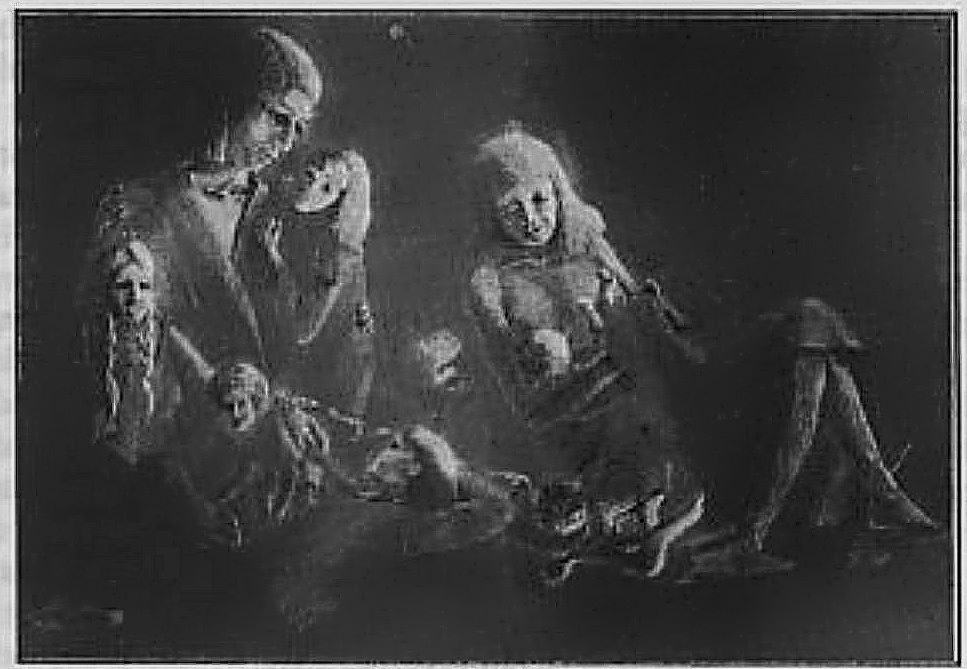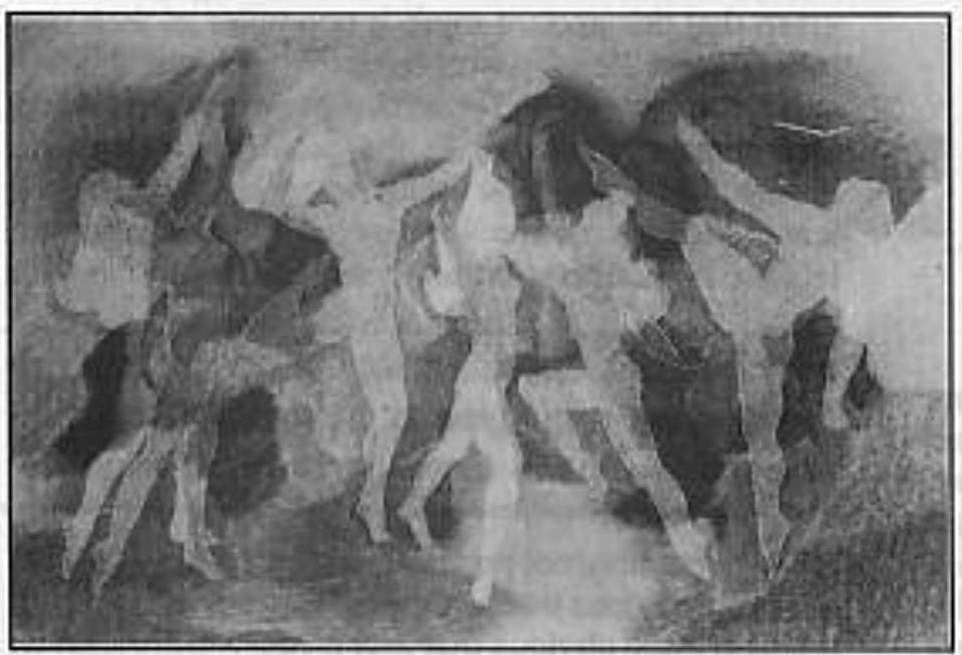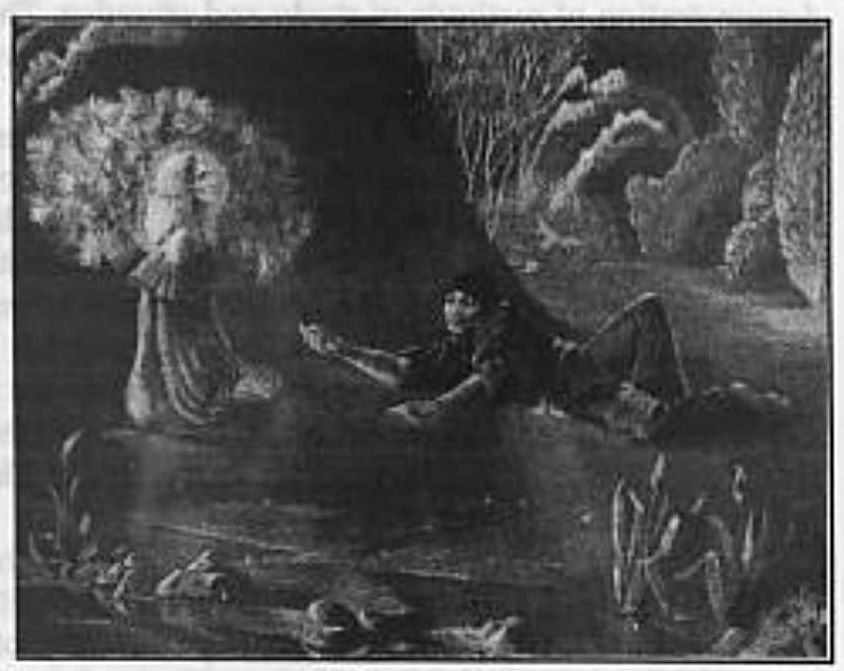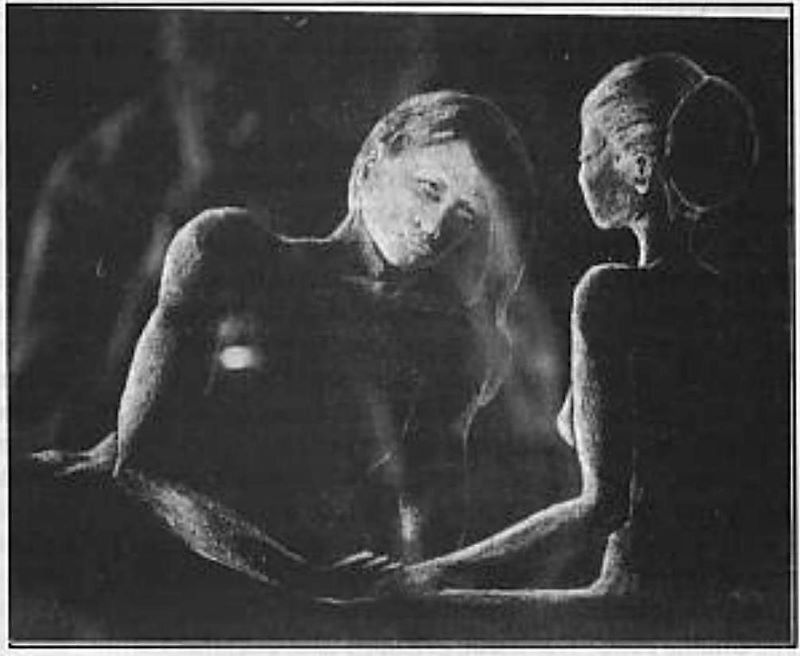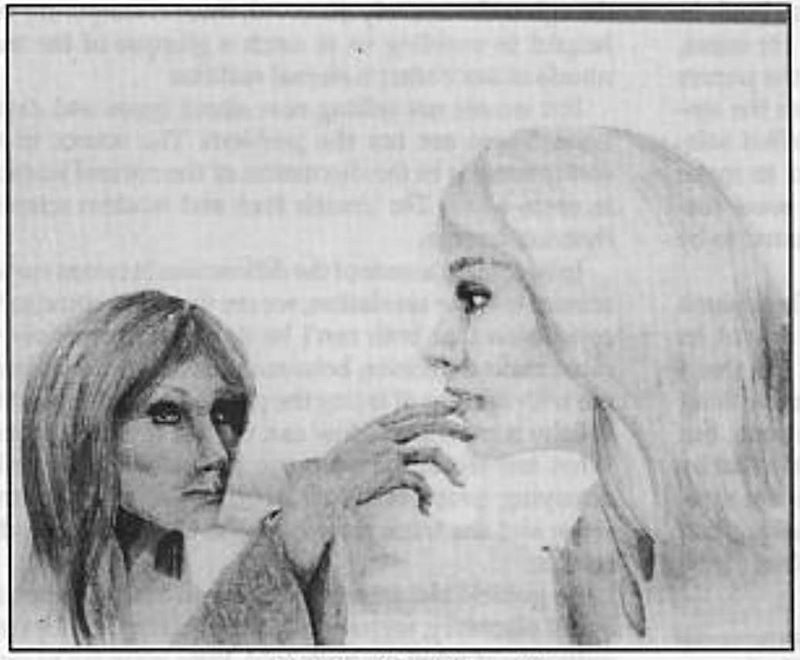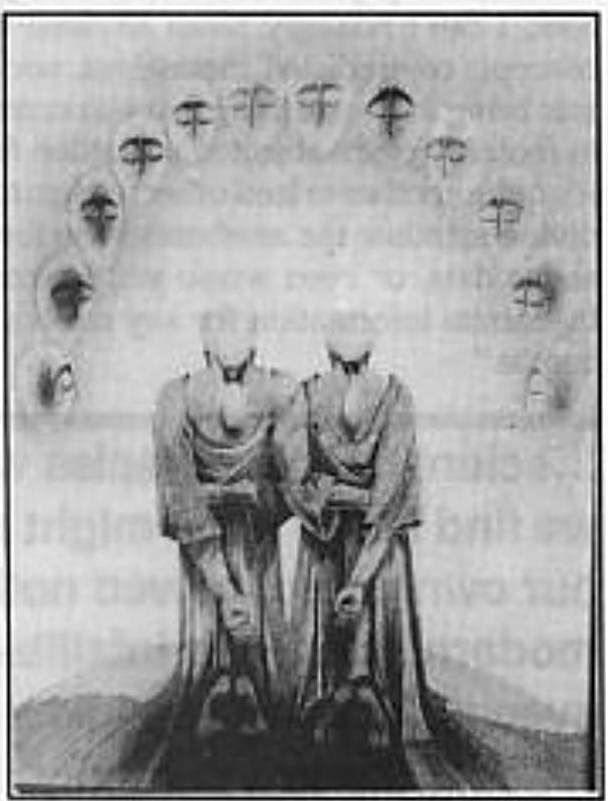© 1993 The Urantia Book Fellowship (formerly Urantia Brotherhood)
Spring, 1993
Volume 18, Number 1
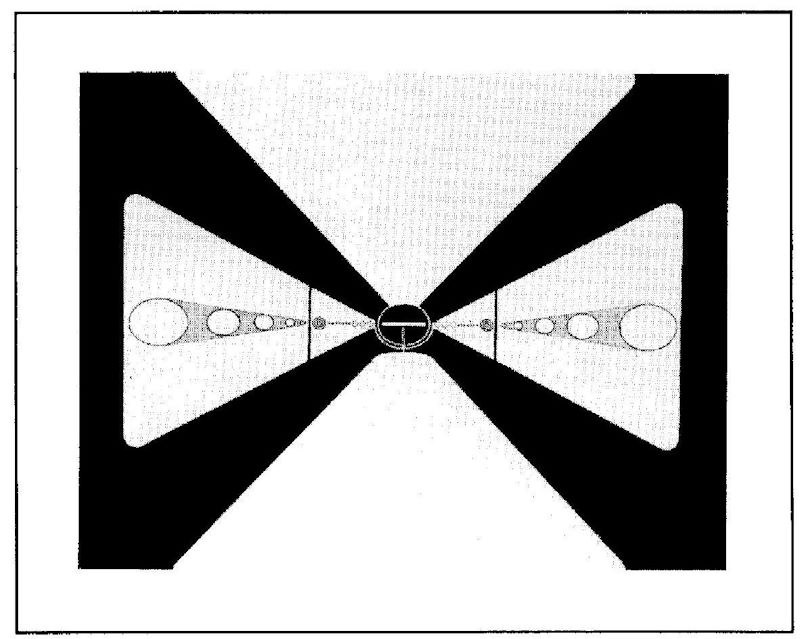
¶ The Journal
The Journal is a literary and artistic as well as a philosophical and investigative publication for readers of The Urantia Book. It publishes works of excellence related to the teachings of The Urantia Book and chosen from submissions of readers throughout the world. Both content and quality are considered by editors in choosing what to publish in The Journal.
The publication includes poems, artwork, photography, essays, and other forms of prose, including fiction. Non-fiction may include philosophical essays, scientific articles, and speculative pieces based on issues in The Urantia Book.
The artwork or photography chosen for the cover of each issue must be of exceptionally high quality due to its prominence. Cover art is currently sought for the next issue.
¶ Submitting Material
Everyone is invited to submit work to be considered for publication. But we ask that you send only a few of your best poems or a related series of poems rather than a book of many poems. Shorter essays have the best chance to get in. And it is better to send a high-quality photograph of your artwork or a camera-ready copy of your photoart that does not need to be returned. Of course, if original artwork must be sent directly to us, we will return it, though it is still preferable at least to send a photograph first to help the decision as to whether it will be published.
The Journal
Published Semiannually by the Publications Committee of THE FELLOWSHIP
529 Wrightwood Avenue
Chicago, IIlinois 60614
Subscription Price: $8.00 per year
(International Subscribers add $1.00 for postage)
- Managing Editor: David Kulleke
- Planning Committee: Scott Forsythe, Lynne Kulieke
- Essay Editor: Bob Buselli
- Poetry Editor: Byron Belitsos
- Art Editor & Nameplate Design: Clen Thorsander
- Graphics & Typesetting: Nancy Johnson
All quotations within this Journal, unless otherwise indicated, are from The Unantin Book, © 1955 by URANTIA Foundation, all rights reserved.
Inasmuch as there is no official interpretation of the teachings of The Urantia Book, the views expressed herein are based wholly upon each author’s understanding and personal religious experience.
Copyright © 1993 by The Fellowship. All rights reserved.
Printed in U.S.A.
The cover photograph is by Packy Eckola.
spring after a long cold winter
circuits open like blossoms one by one
broadsasts of light to be heard again
on this gently waking planet.
— Paul Miller
¶ Responses
Editor’s Note: The following two commentaries are in response to the article by Dan Massey in the last issue of The Journal, primarily concerning Jesus’ earth career and the role Mithraism played in it. While the tone of the responses is at times somewhat critical, the decision to publish both opinions was based on the thoughtful quality of ench and, especially in the case of the second, longer article, its scholarly approach. A response from Dan Massey follows ench. As Dan himself said, “Open discussion of ideas contained in [my] paper could be bereficial and interesting to readers of The Journal.”
¶ To The Editor, The Journal
Re: “But who say you that I am?”
Many thanks to Dan Massey for conveying an interesting theory, some entertaining and thought-provoking speculations, and some good insight into the “preparatory” work Jesus did on his trip to Rome. But…
The point ignored in Dan’s article is that the apostles, at Peter’s instigation and over the objections of Nathaniel, did not do what Jesus had told them to do. They didn’t preach the simple gospel he had taught and lived among them; instead, they preached a message “about” Jesus, focusing on the facts of epochal revelation and the material circumstances surrounding it. (Sound familiar?)
Dan’s article invites an erroneous and unfortunate conclusion in the mind of the reader: that the serious mistakes of the apostles were an expected part of the Salvington plan, and therefore of no consequence in ensuing events. It would seem to follow, then, that any similarly unwise actions on OUR part are probably expected by Salvington, and therefore not really our responsibility. How convenient!
It is true, and certainly interesting, that Jesus prepared the way among Mithraic (and other) groups for the reception of something. But it seems clear to me that the “something” he had in mind was his saving message of the ever-present potential of a sonship relationship with a living and loving God. This is what Jesus told the apostles to preach, and what he had trained them to teach for years.
If the apostles had carried the gospel message instead of one of their own devising, the world would be a different and better place today.
I see no reason to believe that the apostles’ substitution of facts about Jesus for his gospel message was any more a part of the Salvington plan than were the mistakes of Adam and Eve. These events were simply creature error, with real and lasting repercussions for the whole world — slowing down and confusing planetary progress.
It was certainly within the power of understanding of the apostles to go forth and preach the same thing Jesus had practiced them at preaching all those years!
Jesus’ preparation for the reception of their message by Mithraism, and therefore by Rome, would have worked whichever message they had carried!
It remains true: If the apostles had carried the gospel message instead of one of their own devising, the world would be a different and better place today. They could have; they should have; and (I believe) Jesus intended them to — but they just didn’t.
And so it is in our time: It is not a part of the Salvington plan that we should foster another religion about epochal revelation — by idolizing and glorifying the book, as if it were an end in itself.
That many “fans” of the book seem intent on fostering another such “religion about epochal revelation” does not mean that is what Salvington intended. From a practical point of view, we could be doing a better jobcarrying the gospel in our message and in our lives. If we continue to fail in this regard, it will have a lasting, detrimental effect upon the world — slowing down the progress of Jesus’ spiritual message.
— John M. Andrews
¶ Author’s Reply:
John Andrews seems to have missed the point of my paper. This point was, simply, that Jesus knew enough about human nature to anticipate the possibility of Apostolic deviation from his instructions and to prepare a backup plan. In the paper, I speculated that this contingency could have been foreseen during the planning of the bestowal. I provided evidence that this eventuality was anticipated by Jesus in his handling of the Apostles after the Capernaum crisis. I think everyone agrees with Mr. Andrews that the direction the Apostles took, in fostering a religion about Jesus, was not the best choice; however, The Urantia Book makes clear that what they did do was also not the worst choice they could have made.
My paper was offered in the context of a careful, intellectual study of Part IV of The Urantia Book. At no time did I suggest that this line of thinking should be applied to our present-day choices about dissemination of epochal revelation. Because Mr. Andrews has opened this discussion, I feel entitled to offer my own thoughts on the subject.
It seems reasonable to me that the varying responses of mortal minds and human social institutions to the fifth epochal revelation, and the events surrounding it, have been anticipated by the revelators. In the total scheme of things, there are “best choices” available to each of us, as individuals, in knowing and executing the divine will with respect to the revelation. Our individual growth in supremacy is a result of our success in making these choices.
The aggregate of our individual choices determines the social trajectory of the revelation. Salvington must plan for and respond to all reasonable possibilities. No doubt some possibilities are vastly more desirable than others. While The Unantin Book provides a great deal of advice about what to do with Jesus’ revelation, it provides very little guidance about its own mission. Mr. Andrews believes he knows of one possible approach that is absolutely wrong — to foster a religion about the book. Many other readers would disagree with him. This argument becomes endless because it ignores the fact that individual moral choice determines group behavior. Groups do not and cannot make moral choices.
…the varying responses of mortal minds and human social institutions to the fifth epochal revelation … have been anticipated by the revelators.
— Dan Massey
¶ Truth Is Not Trickery
[This is a response to “But who say you that I am?” by Dan Massey in the Summer/Autumn 1992 Journal. Relerences to the article will be given by page and column number.]
To those of us who believe that Jesus really was the fulfillment of the highest spiritual hopes of the two Isaiahs, Dan Massey has an acidic reply: the Hebrew Bible is mainly the product of “generations of pseudo-religious social parasites,” “There was virtually nothing in the pseudo-sacred texts of the Hebrews that Michael could expect to use effectively.» (6,2) And «the Mithraic version was closer to the truth than the Hebrew concept of the Messiah.” (10,1)
Massey’s skimpy research on Mithraism and his bitter words about Judaism tend to discredit everything in the article. There is much that can be said about the disciples’ “obsession with the Messianic myth” (11,1), but Massey characterizes Judaism as “ethnocentric silliness” (6,2) and says that Jesus really set out to fulfill “the mythic adventure of Mithras.” (13,1)
Apparently the choice of the Jews as bestowal race was a big smoke-screen; Jesus was really investing his hopes in a mystery cult. “The belief system of the human race was tricked by God.” (15,1)
¶ Author’s Reply:
I have been most gratified by the interest which my paper, “But who say you that I am?” has generated among readers of The Journal. The paper was presented at the midpoint of the Education Committee’s program of study of Part IV of The Urantia Book, and was designed as a contribution to the total study agenda. Readers who have followed the development of these programs over the years understand that there is a multiple focus — study of the book, stimulus to study the book, and demonstration of methods of study and stimulus. The fact that many readers have written to me with positive observations about the paper has been gratifying.
The fact that two readers, Mr. Andrews and Mr. Finlan, presented negative views is also gratifying since they took the time and effort to put their objections in writing to share with others. To the extent this debate stimulates others to examine the issues, the paper serves its actual purpose. For this reason, I will not provide a lengthy defense of the paper. Instead, I will point out a few ways Mr. Finlan, like Mr. Andrews, has distorted the intent and thrust of the paper. I invite readers of The Journal to examine the issues in this light.
Mr. Finlan’s response to my paper confuses the method employed to stimulate thought and study with the topic under discussion. He seems particularly offended by my use of the image of a trickster deity to reflect the teachings of The Urantia Book in a way which undermines traditional myths of Christianity. This offense at my method leads him into an argumentative complaint that, by his own admission, fails to address the actual topic of my paper.
Mr. Finlan’s pronouncements on Mithraism, in spite of his elegant bibliography, are quite biased. Students of The Urantia Book should know that virtually nothing is academically recognized as known about the belief systems and worship practices of Mithraism. The Urantia Book, understood as a revelation of truth, contains more authoritative information about Mithraism than all the sources cited by Mr. Finlan. The failure of students of comparative religion to identify Mithraic roots stems from the fact that (reformed) Mithraism is alive and well today within Christianity. Like Urantian astronomers struggling to map Orvonton from a point within its vast star clouds, these academicians have largely failed to grasp that this ancient myth is one pillar of their own belief system. Revelation corrects this problem. Whether or not one agrees with David Ulansey’s interpretation of Mithraism is irrelevant to the point of my paper. I thought Ulansey’s book useful for background because it is written from a secular viewpoint and is concerned with the Mithraism of Tarsus, home of the tentmaker, Saul.
My paper does not portray Judaism as “a poor third.” It is quite obvious that Mithraism was the “poor third.” It is also quite obvious that first century Mithraism (as an organized system) achicved some temporal “suocess” and that first century Judaism (also as an organized system) failed literally, mindally, and spiritually.
Mr. Finlan misunderstands the idea of “trick” in rellgion. A trick is, for example, an apparently innocuous situation arranged by deity in such a way that the person of good intent emerges blessed by the experience, while a person of evil intent experiences reproof and a chance to adopt a better attitude. There is nothing malicious or negative about the trick. It is one of the most common ways in which good comes to triumph over evil. One element of Jesus’ ministry was such a trick: would he be accepted as the Son of Man or the Son of God? The path taken, the choice of the Son of God, amplified evil hidden in the hearts and minds of mankind so it could eventually be corrected. Anyone might believe Jesus is the Son of God. Only the truly pure of heart can know Jesus as the Son of Man.
My paper does not “blame Jesus” for the temporally hideous outcome of the trick. Rather, it recognizes that Jesus knew what would happen, knew how his life and teachings would be perverted, knew the incalculable toll of human suffering that would result, and knew that, through the Spirit of Truth, he would experience every single bit of it. The Apostles made a free will choice to reject the Son of Man. Knowing them well enough to see the inevitability of this, with supreme grace Jesus offered them the Son of God as a way to protect and foster the light of truth. — Dan Massey
The artwork on pages 8 and 9 (below) concludes a series by Judy Mace on Adam and Eve that has published in three parts by The Journal.

